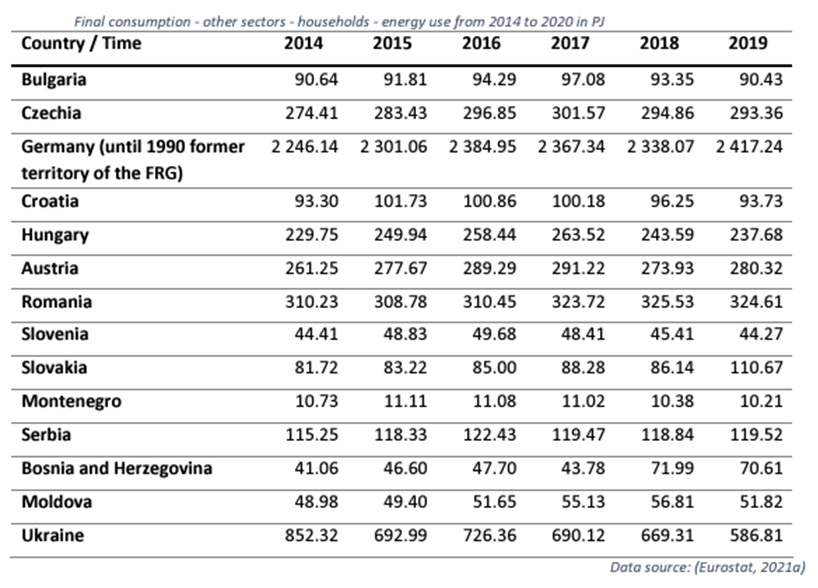ENERGY EFFICIENCY IN BUILDINGS
40% of Europe’s energy consumption comes from buildings and buildings are responsible for 1/3 of the EU’s energy-related GHG emissions. Therefore, buildings play a key role in the decarbonization of the economy and in achieving the Paris Agreement climate targets.
The ‘Sustainable Energy’ Priority Area of the EU Strategy for the Danube Region prepared a study titled ‘The Energy Performance of Buildings in the Danube Region’ that assesses the energy efficiency of residential buildings across nine EU Member States and five non-EU countries. It focuses on trends in construction, renovation strategies, energy consumption, and compliance with EU energy directives.
There is a steady growth in residential building stock throughout the region, with urban areas emerging as hubs for new construction. However, an observable trend is the reduction in apartment sizes, which have decreased by up to 20% in some countries over the past decade. Despite this growth, the rate and depth of building renovations remain insufficient to meet EU climate and energy goals.

EU Member States show partial compliance with directives like the Energy Performance of Buildings Directive (EPBD) and Energy Efficiency Directive (EED). In contrast, non-EU countries face more significant challenges, such as financial limitations, outdated policies, and insufficient access to renovation funding. Many renovation roadmaps across the region predate the EU Renovation Wave initiative, leading to only partial alignment with its objectives.
Key barriers to progress include limited financial resources, regulatory gaps, and low awareness of energy efficiency benefits. Non-EU countries face additional obstacles, including delays in adopting strategic frameworks and gaps in financing mechanisms. These barriers hinder the region’s ability to fully capitalize on opportunities for energy savings and sustainability.
The study also highlights examples of successful energy-saving initiatives in the region and offers actionable recommendations. These include improving funding accessibility, updating renovation strategies to align with current EU requirements, and scaling best practices across countries.
In conclusion, the study emphasizes the need for targeted action to accelerate renovations and enhance the energy performance of buildings. Addressing these gaps is critical for achieving EU climate targets and promoting sustainable development in the Danube region.
The study can be found at the Priority Area’s website here.
